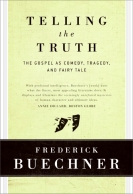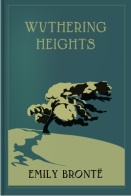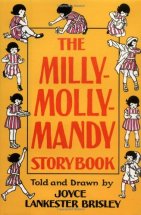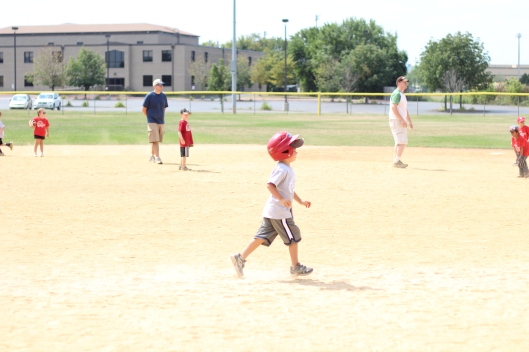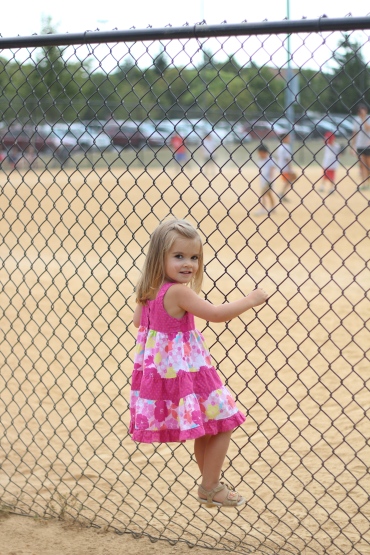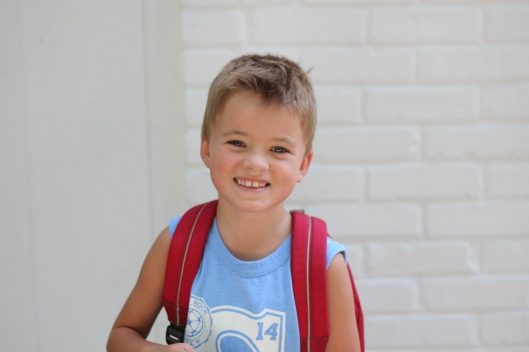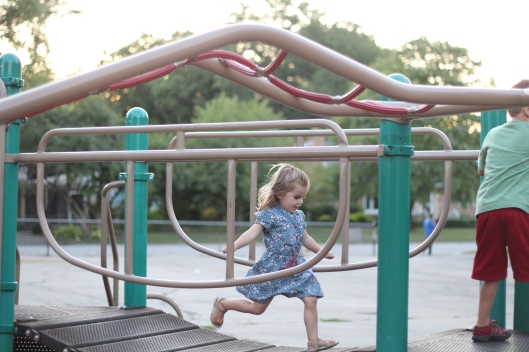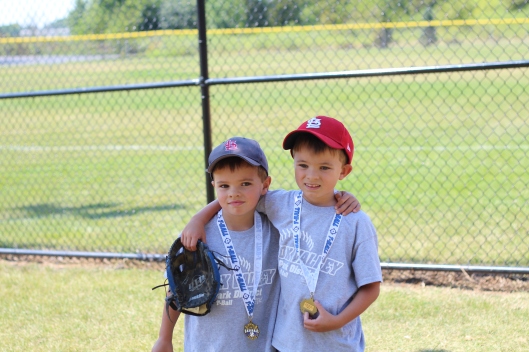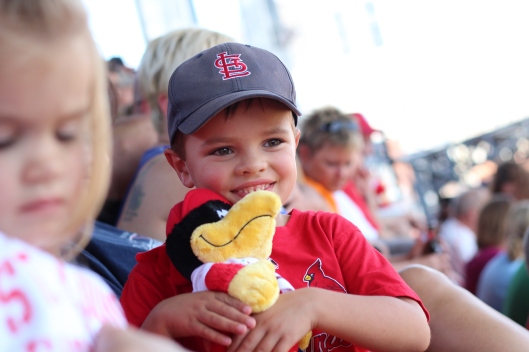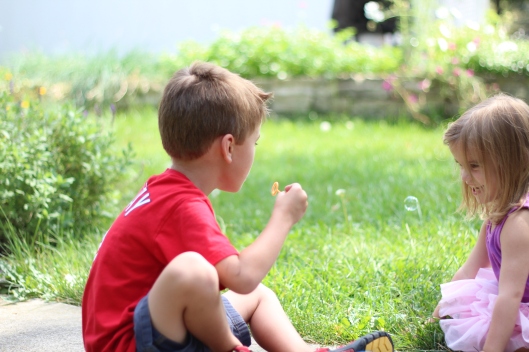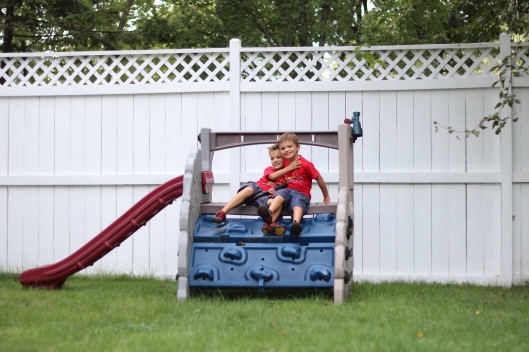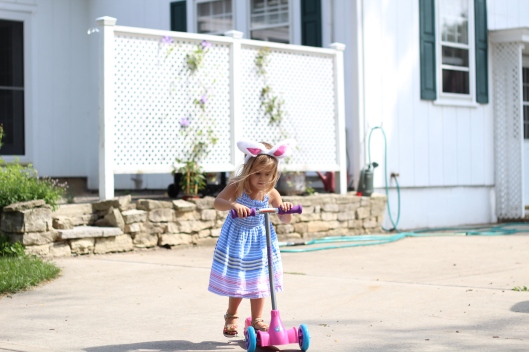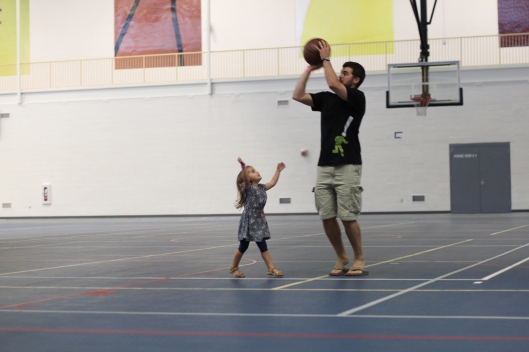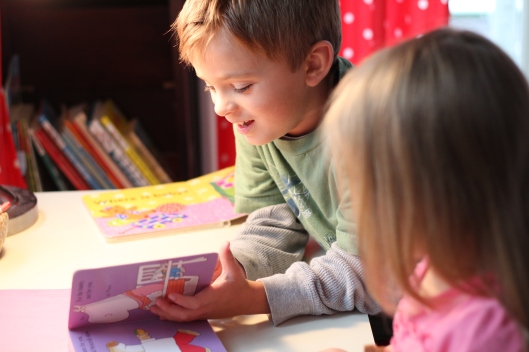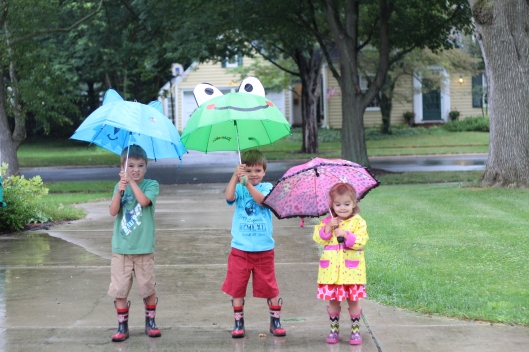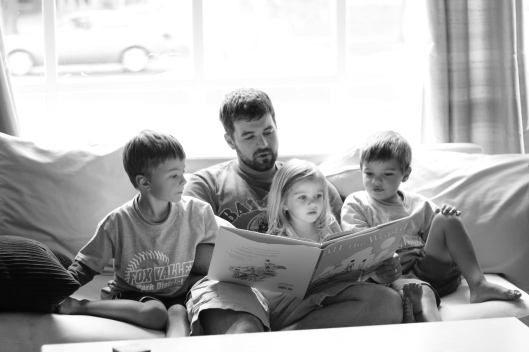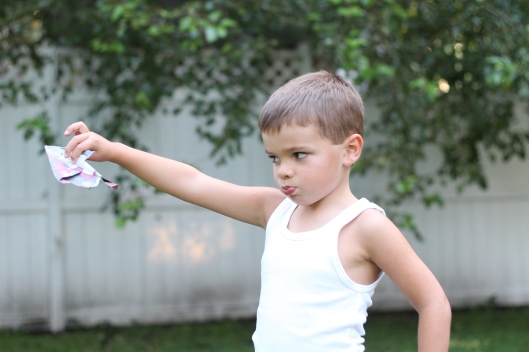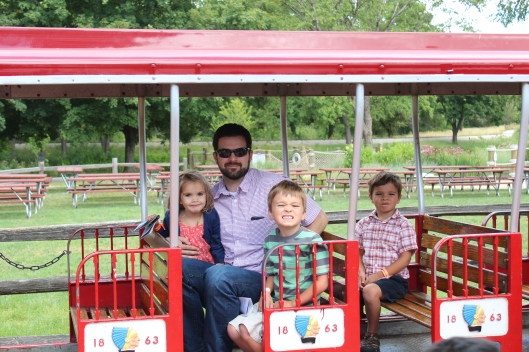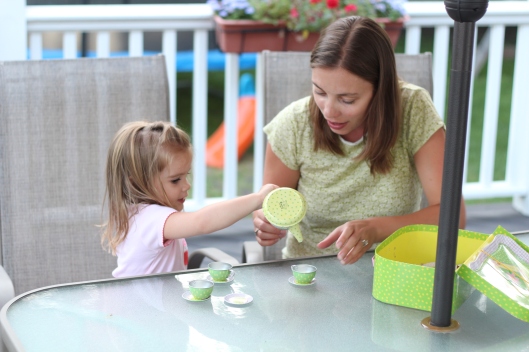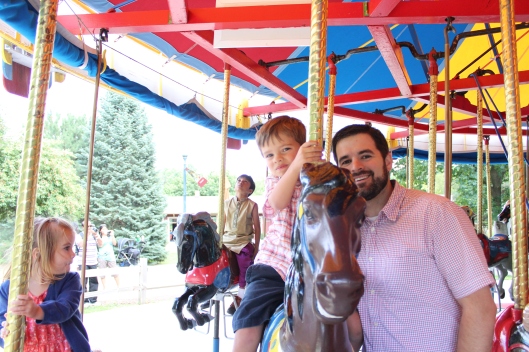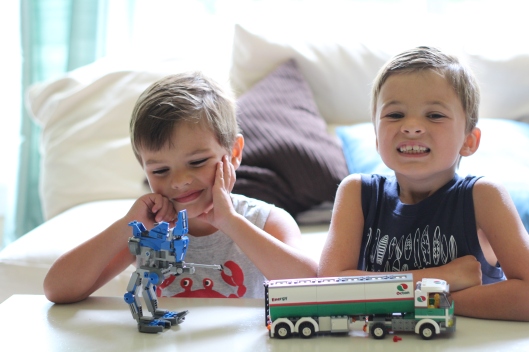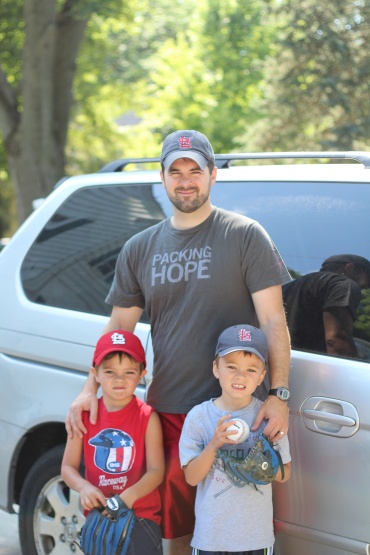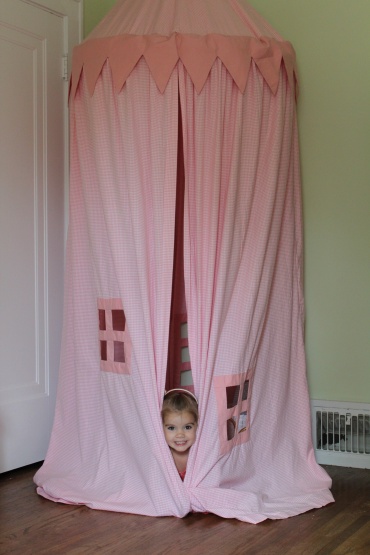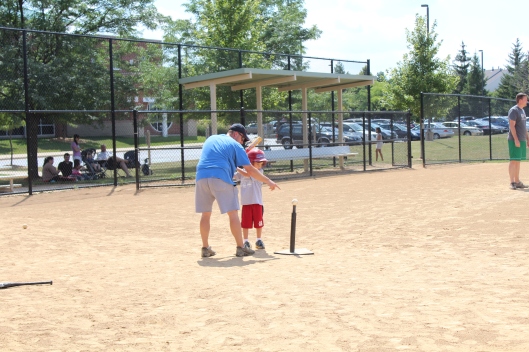I don’t know what I’m getting for Mother’s Day. Probably crayon-drawn cards and nosegays of dandelions from the backyard. Maybe a gift; maybe a bouquet from the florist. We might have dinner at Whole Foods, the only place our food-allergic children can eat out with any degree of safety. I don’t know, and that’s okay. There were years I had much higher expectations, but I ran into real life. And I find that real life has a way of making our expectations smaller, and our gratitude greater.
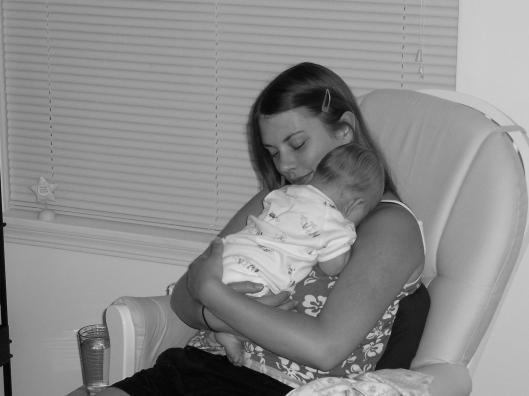
Poking around on social media this past week, I happened upon a couple of conversations about how Mother’s Day should be celebrated. Mothers expressed their frustration with husbands who didn’t make special plans for them; mothers complained that they were ignored while their mothers-in-law were celebrated; mothers claimed the right to choose all the family activities that day; mothers joked that husbands who didn’t get it right should get comfortable sleeping on the couch. And I was troubled.
I want to first say one thing very clearly: mothers should be celebrated. I don’t excuse insensitivity and hurtful behavior, and I never want to invalidate anyone’s pain. If you are a mother, and you are ignored on Mother’s Day, that is wrong and I am so sorry. I hope you can find a way to have a constructive conversation with the people who have hurt you, to express your feelings and request their kindness.
But these conversations have made me think hard about what we mothers expect on Mother’s Day. I say “we” because I’ve done it, too. I have seen the day as an opportunity to be treated to something I’ve been wanting (nothing wrong with that) or get a much-needed break (nothing wrong with that either). But as I reflect on it, I think Mother’s Day isn’t really about us as individuals who like gel nails or necklaces or naps. It’s about motherhood, and motherhood isn’t a matter of treats and breaks, jewelry and flowers.
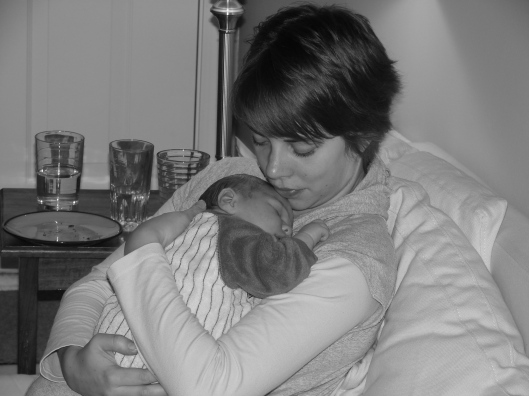
Motherhood is sleepless nights spent pacing the floor with a colicky baby, fretting over a feverish toddler, or waiting up for a teenager out too late. It’s a crumb-strewn car, mountains of dirty dishes and laundry, and a toilet always left un-flushed. It’s changing wet or poopy or vomit-strewn sheets at three in the morning; it’s taking time to dissect topics that bore you to tears (I’m looking at you, Star Wars). It’s doling out medicines and wiping noses when you are sick, too, and wishing for your own mommy to take care of you. And I hear that as the kids get older, it becomes all about driving, and driving, and more driving.
Motherhood is about love, and love means sacrifice. It means laying down our expectations and our rights. It means laying down our lives for the people we love, without regard to what we get in return. When we become parents, we say goodbye to our right to expect a clean car, a relaxing vacation, a peaceful meal, or an unaccompanied trip to the bathroom.
We also say goodbye to our right to expect affirmation and thanks for the hardest work of our lives. Our children may someday rise up and call us blessed, but they will never be able to thank us for everything we did—they won’t even remember half of it. Motherhood is a litany of humble, selfless labors that no one sees. Thanking our mothers for all that tangible love, and being thanked by our children in turn—those are beautiful gifts, on Mother’s Day or any day. But the work isn’t done for the sake of the thanks. If we went into motherhood for the accolades, we picked the wrong profession.
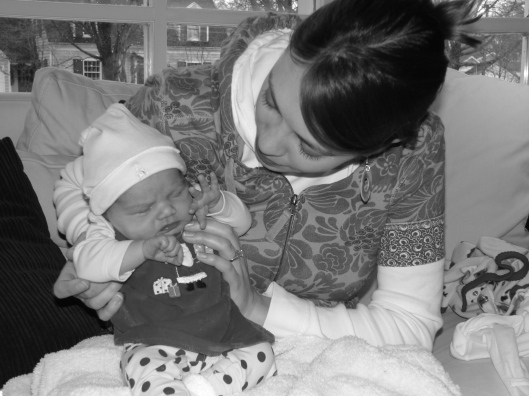
I know this is why Mother’s Day exists: to help us remember to say thank you to the mothers in our lives. But as a mom, I feel the temptation to make the day all about the celebration, all about me, and forget what we’re really honoring.
If Mother’s Day is about love, it’s also about loss and longing, which are wrapped up with love. Honoring the love of mothers means also honoring the pain that comes with Mother’s Day. Because in all the circles of our lives, women are hurting today. They are mourning losses and unfulfilled longings. Some have lost children; some have lost their mother. Some grieve for the babies they could never bear; some grieve for the mother they never knew, or the relationship with her that was never what they dreamed. Some weep for children gone astray, or for children who face myriad challenges. Somewhere a woman and her children are suddenly alone, and she finds herself embarking on a single motherhood that she never planned for her life. Somewhere a woman who made the brave and loving decision to place her baby for adoption aches for the child she carried, but feels judged and demonized for her careful choice. Somewhere a woman is staring at yet another single line on a pregnancy test; somewhere a woman is waiting for another bland and clinical phone call from her doctor, telling her that this IVF, too, was unsuccessful. Somewhere a woman is innocently preparing for an ultrasound that will shock her with the worst news of her life. Somewhere a woman is waiting, wondering if her turn for marriage and motherhood will ever come; and another woman is wondering why other people think she should desire those things when she doesn’t. For every woman celebrating on Mother’s Day, there must be at least one who wishes it would just go away.
Last year Mother’s Day fell the month after we buried our son. The day was torture—not because I didn’t love and cherish our living children, but because I realized I would never again celebrate with my whole family. This year I have a new reason to rejoice—our sweet Baby Petunia—but every year we celebrate, we will still feel the hole where Simon should be. My mom doesn’t get to celebrate with both her children because my brother passed away almost three years ago. For us, and for so many other women, Mother’s Day holds both joy and sorrow.
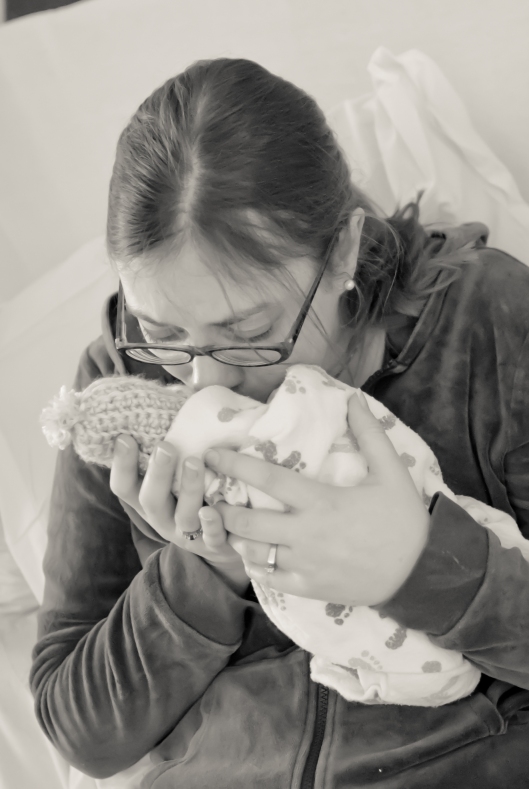
I imagine that some of the women laying out specific expectations for Mother’s Day may come to it from a background that includes some of those sorrows. Perhaps they’ve waited a long time to stand up in church with all the other mothers. I can appreciate that. But for me, I want my awareness of all the sadness—mine and others’—swirling on Mother’s Day to make me tender and thankful, not demanding. Whether or not the day meets my expectations for a celebration, I want to remember the real reasons I have to celebrate: the four small people who call me “Mama”, who have needed me for almost everything in their lives, whose warm heads I get to tuck under my chin. I get to be their Mama, and it’s not about what I receive in return. I want them to value fairness and justice, to show gratitude, to applaud equally the labors of men and women in all walks of life. But most importantly, I want them to be people who love, sacrificially and unselfishly, in big ways and small. And for better or worse, I know that mine is the example of love that looms largest in their little worlds. I want it to be for better.
To those who endure grief on Mother’s Day: I am deeply sorry. I hope you are touched with love today, somehow, through the pain. I hope you feel that your sorrows are seen, and that your love and your losses are honored.
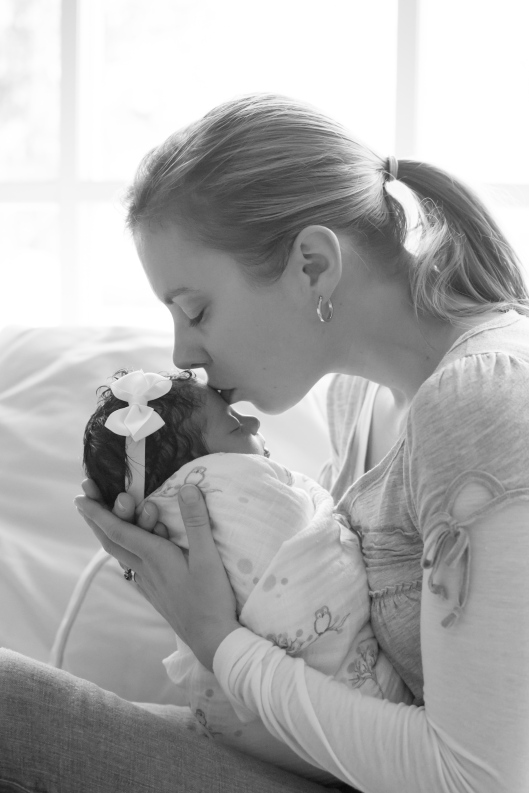
And for all who are moms this Mother’s Day: let’s be gentle with the ones we love and thankful for time we enjoy with them today, whether or not they get the celebration quite right. Let’s be gentle with our sisters who are hurting; let’s hug them, write them notes, and tell them we remember. Let’s be gentle with our children–not because of the thanks they may offer, but just because they are our children, and because we have this day, today, and are guaranteed no other; and because for the rest of their lives, when they think of what a mother is, they will think of us. Let’s be gentle with ourselves, not expecting to be perfect any more than we expect the day to be perfect. It’s a day like any other day: let’s make it a day to love, though we are broken and inadequate and not always lovely; to love, even, out of those very broken and inadequate and unlovely places. Because Mother’s Day honors being wholehearted and unreserved with each other, offering our very selves—and I doubt we could dream up any expectation better than that.
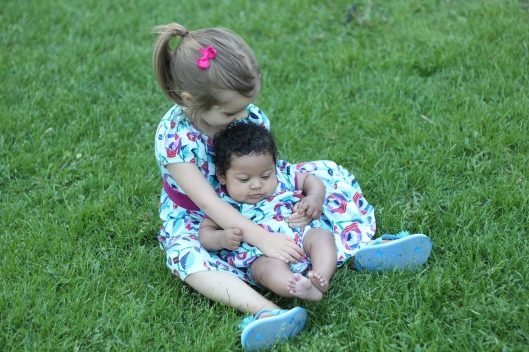 “Tomorrow is a very special day,” I said.
“Tomorrow is a very special day,” I said.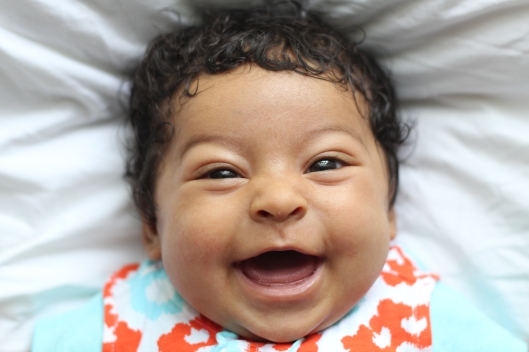 Her hands clasped her cheeks. “Tomorrow? Just one day? That’s so short!”
Her hands clasped her cheeks. “Tomorrow? Just one day? That’s so short!”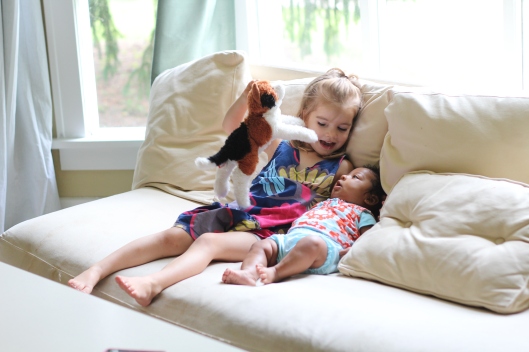 “Yep,” I said. “Finalization Day!”
“Yep,” I said. “Finalization Day!”
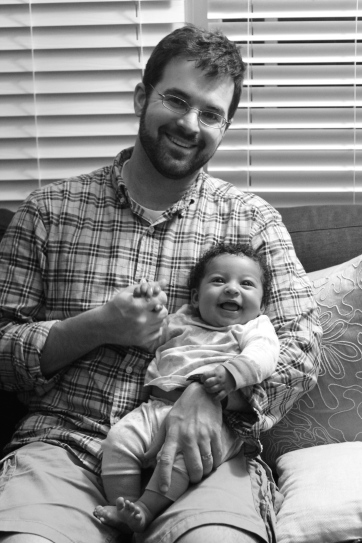
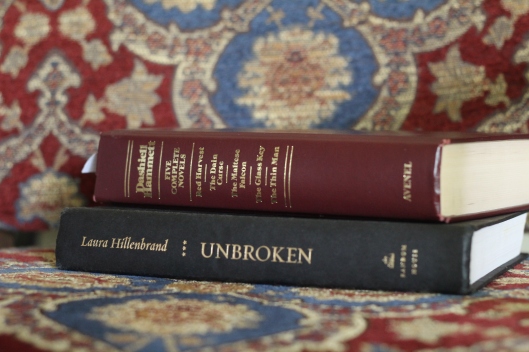
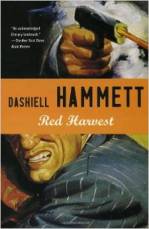
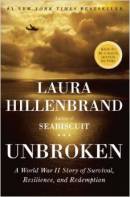
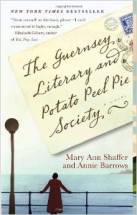
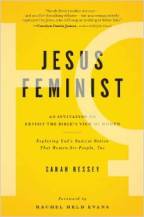
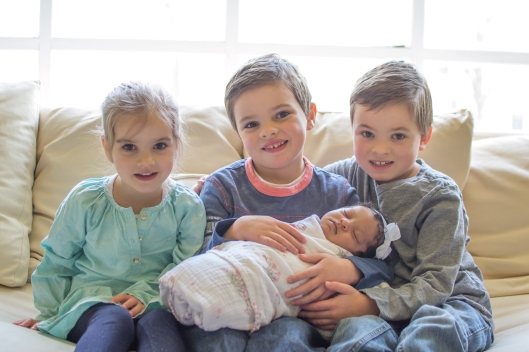
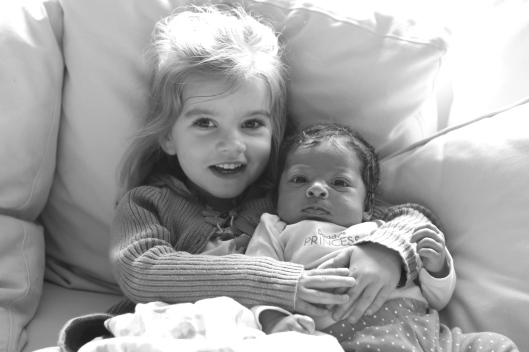
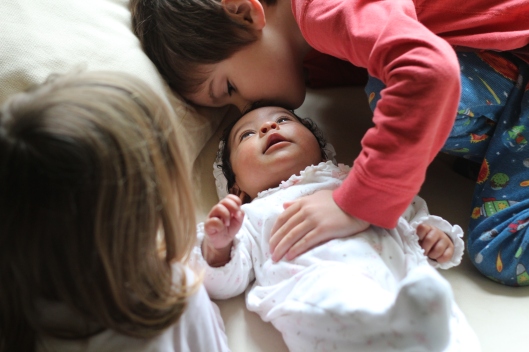
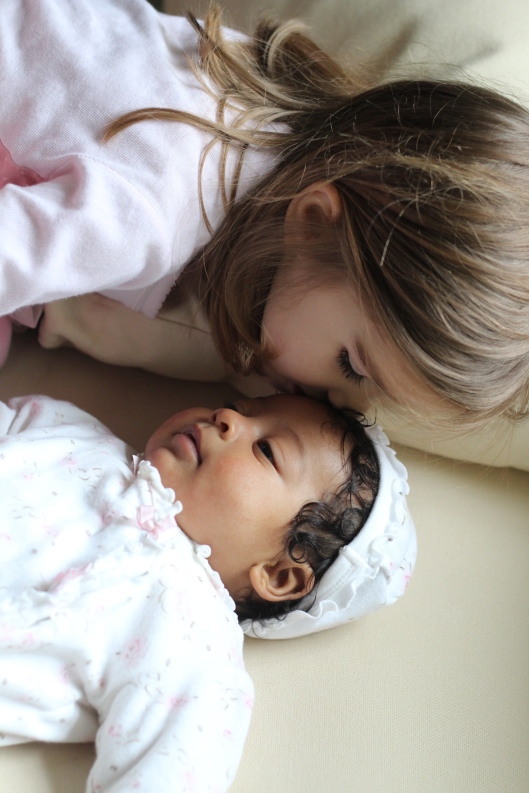
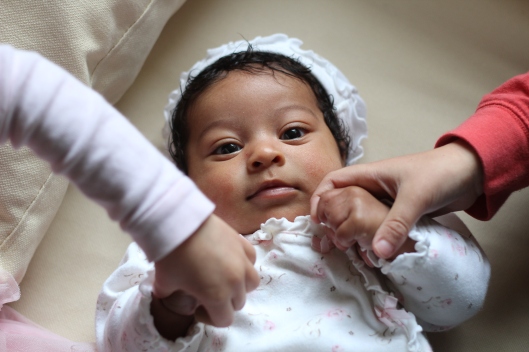
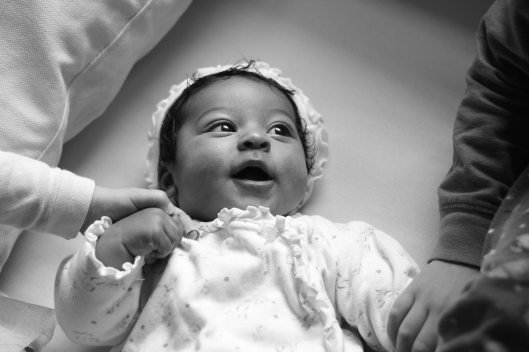
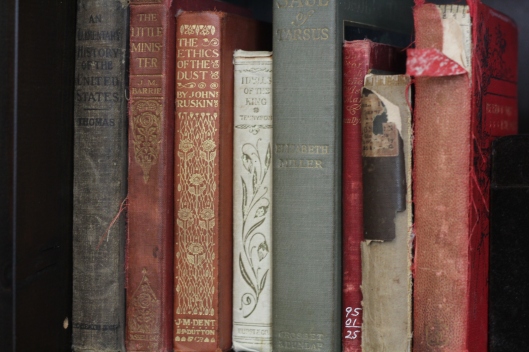
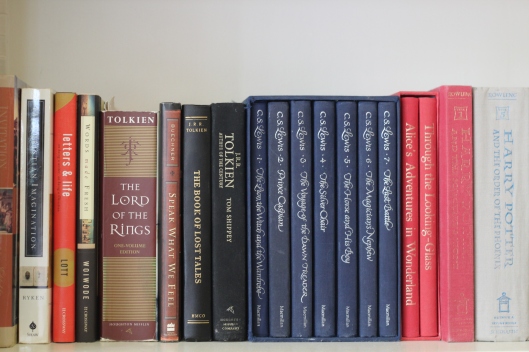
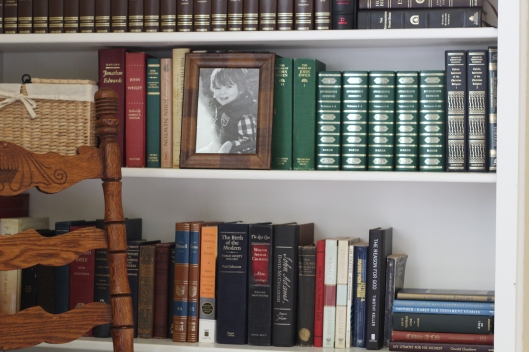
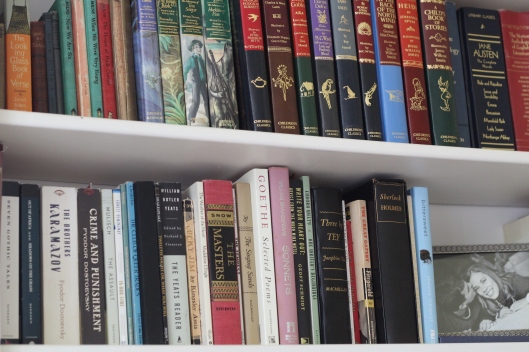
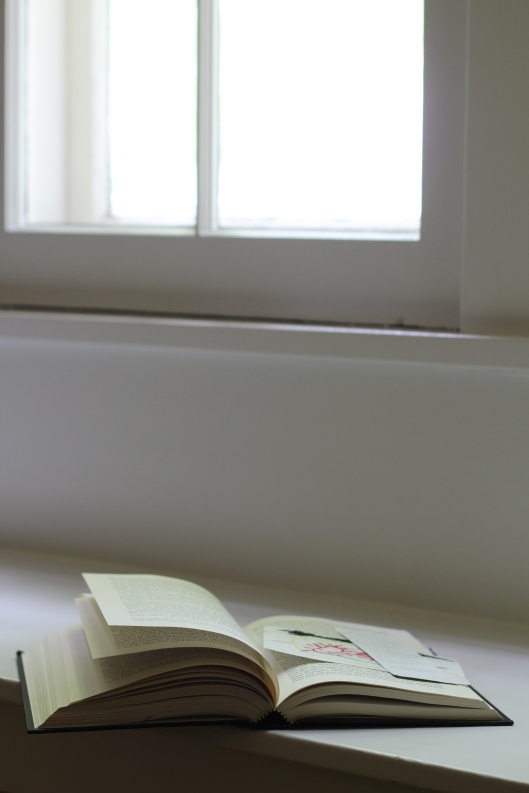





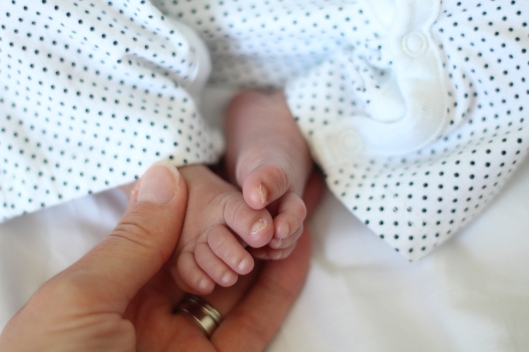
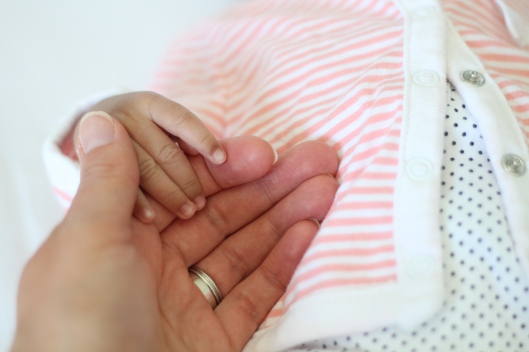
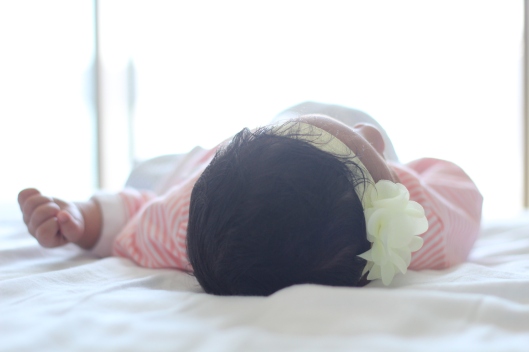
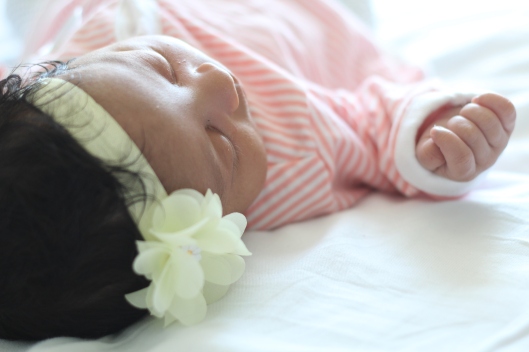
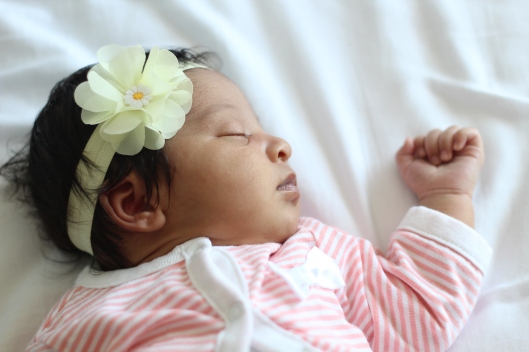
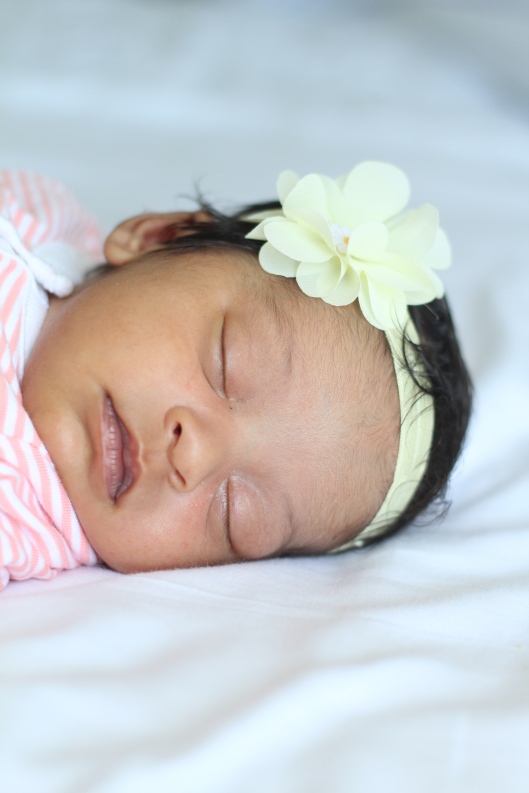
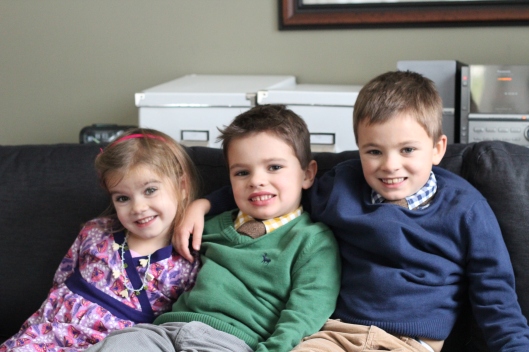 Three little people who constantly ask me when we are going to adopt a baby!
Three little people who constantly ask me when we are going to adopt a baby!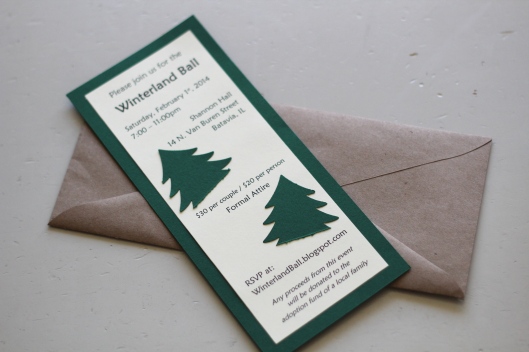
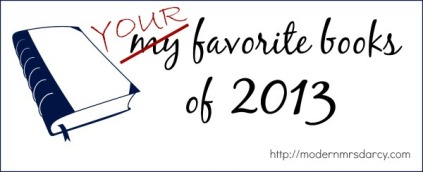
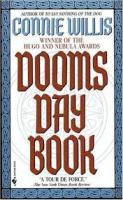
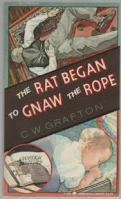
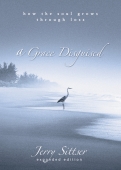

 Hamlet
Hamlet